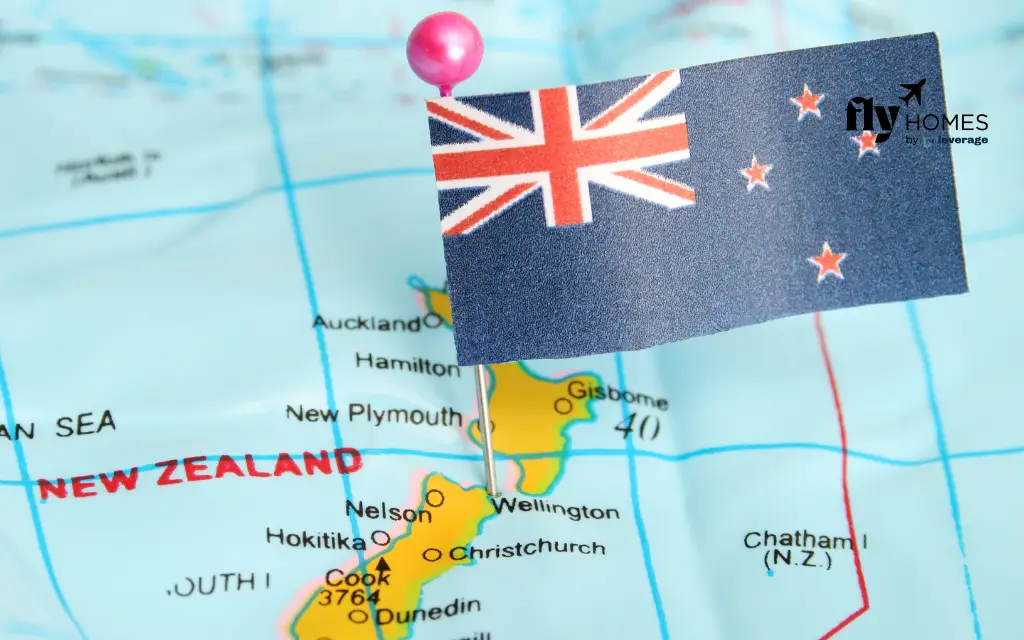New Zealand Travel Restrictions: If you are a student planning to travel to New Zealand for higher studies, you must know certain travel restrictions. Knowing this will help you enter the country hassle-free and comfortably. While travelling to New Zealand there are certain formalities that you must do such as filling out the digital declaration form.
There are also items that you can not bring to this country. This blog post will help you understand these New Zealand travel restrictions. So, let’s dive right into it!
This Blog Includes:
Submitting a Digitial Declaration
Before planning your travel to New Zealand you must make sure that you are eligible for travel and have taken all the right steps as per the procedure. You must have a valid passport and visa and your passport must be valid for at least three months beyond your intended departure date. Another important step to do is to fill out the ‘digital declaration’.
What is the New Zealand Traveller Digital Declaration?
Everyone entering New Zealand must submit a declaration that collects travel, customs, immigration, and biosecurity information. The declaration aims to improve the safety and security of New Zealand. The things that you’ll need to mention in your declaration include-
- Passport details
- Contact details in New Zealand
- Travel history from the last 30 days
- Travel details
- Information about what you’re bringing into New Zealand
- VISA or NZeTA, if you need one
Things You Need to Know About the Digital Declaration
There are certain things you must know about this declaration-
- It is mandatory to fill out this declaration and there is no fee charged for submitting it.
- You can submit the declaration on the NZTD App or online form.
- For people travelling by air, the earliest you can submit your declaration is 24 hours before you start your trip to New Zealand.
Also Read: Check out the best museums in New Zealand
New Zealand Travel Restrictions Regarding Risk Goods
Certain items are not allowed to be brought into the country. This travel restriction has been kept to minimise or avoid any kind of damage to New Zealand and its environment. These items are either restricted or must be declared if they are deemed to present a biosecurity risk. These items can include food, plants, animal products, and outdoor recreational equipment.
At the airport security check, your baggage may be X-rayed or sniffed by a detector dog. This process will ensure that you don’t enter the country with any goods that may endanger the nation’s security. Some items that can be considered risk goods include animal medicines, biological cultures, organisms, soil or water, etc.
New Zealand Travel Restrictions Regarding COVID-19
As of now, COVID-19 vaccination and testing requirements are no longer required for all travellers arriving in New Zealand, including aircrew. Though the vaccination is not mandatory, it is encouraged that all travellers remain up to date with their vaccination status before travelling to New Zealand.
It is important for students that they get themselves vaccinated to prevent infection and any kind of severe symptoms.
Travel Restrictions After Arrival
Travel restrictions do not just include the restrictions before entering a country, they also include restrictions post-arrival. This ensures the safety of the travellers as well as the country. Let’s look at some of these travel restrictions.
Need For Antigen Tests
When students arrive in New Zealand, they can expect to take an antigen test. You’ll be given a free pack of rapid antigen tests (RATs), with instructions, at the airport. Generally, travellers are advised to take the test on the same day of arrival or the day after.
Though it is not mandatory to take this test, however, people having symptoms of COVID-19 are encouraged to do so and report the results of the test.
Further Read: Check out some of the best parks in New Zealand
FAQs on New Zealand Travel Restrictions
Items that are not allowed while entering New Zealand include-
– Plants or parts of plants (alive or dead)
– Animals (alive or dead) or their products
– Equipment used with animals
– Biological specimens
– Equipment such as camping gear, golf clubs, etc.
No, COVID-19 vaccination and testing requirements are no longer required for all travellers arriving in New Zealand.
Yes, you can bring your medicines to New Zealand but you’ll also need to carry your doctor’s prescription along with it.
Travelling to New Zealand requires you to complete a customs declaration form when bringing notified goods (animals, fresh food, plant materials, seeds, soils, meat, alcoholic drinks, animal products, etc.) across international borders.
Yes, anyone travelling to New Zealand is required to fill out the digital declaration.
For students planning to study in New Zealand the two most common concerns are how much it costs to study in New Zealand and what are the travel restrictions for this country. Hope this blog helped in answering all your queries regarding New Zealand travel restrictions.
For booking the best accommodation abroad to start your study abroad experience you can contact Fly Homes at 1800572118.
Follow Us on Social Media




























